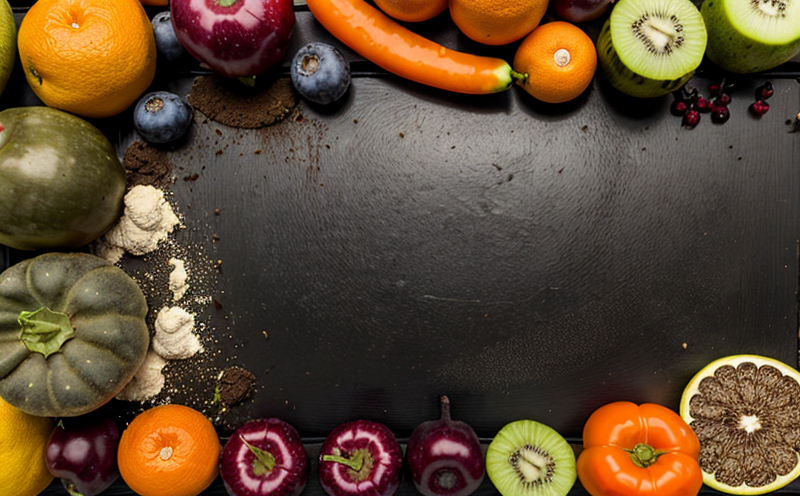USP Microbial Limits Testing in Vegetable Extracts
The United States Pharmacopeia (USP) Chapter outlines stringent guidelines for microbial limits testing to ensure the safety and quality of pharmaceutical ingredients, including vegetable extracts. Microbial contamination can compromise the integrity of medicinal products by introducing contaminants that may affect efficacy or even cause harm. This service is vital in ensuring compliance with regulatory standards, protecting public health, and maintaining consumer trust.
Microbial limits testing involves assessing the presence and quantity of specified microorganisms within a given sample. For vegetable extracts used in pharmaceuticals, this test ensures that the extract remains free from undesirable microorganisms such as fungi, bacteria, yeasts, and molds. This service is particularly important for products intended for oral consumption or topical application.
Our laboratory follows stringent protocols to conduct USP testing. Specimens are prepared according to established procedures, ensuring consistency and reliability of results. Testing methods include the use of appropriate media, incubation conditions, and isolation techniques designed to detect even trace amounts of microorganisms. Our team of experts ensures that all samples undergo thorough analysis using advanced microbiological techniques.
The acceptance criteria for USP testing are based on international standards such as ISO 11731-2:2020, which provides guidelines for the determination of viable fungi and yeasts in liquid preparations. These standards ensure that our laboratory adheres to the highest quality control measures.
The process begins with receiving a sample from the client, followed by detailed examination to understand its composition and intended use. Specimen preparation involves dilution steps tailored to optimize detection sensitivity. Cultivation of samples is conducted under controlled conditions to promote growth while minimizing contamination risks. Post-cultivation, colonies are counted manually or through automated colony counting systems.
Our laboratory uses state-of-the-art equipment like the plate count agar (PCA) medium for fungal and yeast enumeration and nutrient broth for bacterial enumeration. These media support optimal growth of target organisms, facilitating accurate quantification. For more complex samples, additional steps may be necessary to extract relevant components before analysis.
| Specimen Type | Accepted Microorganism Limits | Testing Methodology |
|---|---|---|
| Fruit Extracts | Fungi ≤10 cfu/g, Yeasts ≤10 cfu/g, Bacteria ≤100 cfu/g | PCA Agar and Nutrient Broth |
| Vegetable Extracts | Fungi ≤5 cfu/g, Yeasts ≤5 cfu/g, Bacteria ≤10 cfu/g | PCA Agar and Nutrient Broth |
The results of the microbial limits testing are reported comprehensively, detailing the presence or absence of specified microorganisms along with their counts if present. This report serves as a critical document for regulatory compliance and internal quality assurance.
Our expertise extends beyond mere compliance; we offer valuable insights based on our findings. For instance, we can provide recommendations on improvements in processing techniques to reduce microbial contamination risks or suggest alternative raw materials that meet stringent standards.
Why It Matters
The importance of USP microbial limits testing cannot be overstated. In the food and feed sectors, ensuring the safety of vegetable extracts is paramount to prevent potential health risks associated with microbial contamination. Contaminants like Salmonella, Listeria, or E. coli can pose significant hazards if introduced into pharmaceutical products.
The integrity of vegetable extracts used in medicines relies heavily on this testing. By adhering to USP standards, we guarantee that each batch meets the highest safety and quality benchmarks. This not only protects consumers but also enhances brand reputation and market credibility.
In addition to regulatory compliance, microbial limits testing supports research and development efforts by providing reliable data on potential sources of contamination. This information aids in refining production processes and selecting superior raw materials, thereby improving product quality and consistency.
Industry Applications
- Pharma and Biotech: Ensures the safety of medicinal ingredients derived from vegetable extracts.
- Food Manufacturing: Guarantees the purity of food additives and flavorings sourced from vegetables.
- Cosmetics: Supports the development of safe and effective topical products containing botanical extracts.
Our service is applicable across various industries, ensuring that vegetable extracts used in pharmaceuticals, cosmetics, and food products meet stringent microbial safety standards. This service plays a crucial role in safeguarding consumer health and maintaining industry integrity.
Environmental and Sustainability Contributions
- Promotes responsible use of natural resources by ensuring the quality of vegetable extracts used in various products.
- Reduces waste through efficient processing techniques that minimize microbial contamination, thereby enhancing overall sustainability.
- Supports sustainable agriculture practices by encouraging the selection and use of high-quality raw materials.
The commitment to USP standards aligns with broader environmental goals, fostering a more responsible approach to product development and production. By adhering to these stringent testing protocols, we contribute positively to both industry and environmental sustainability.





